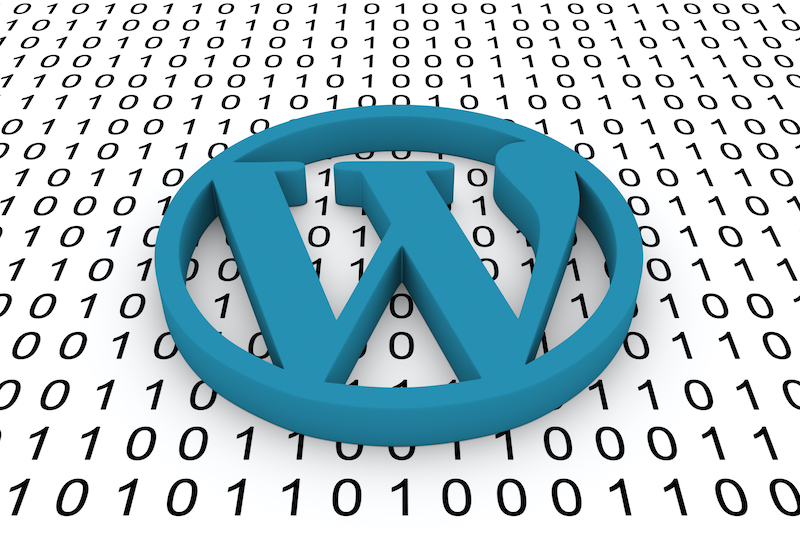Every website owner dreams of getting an abundance of traffic to their website, we often hear in the news that sites have crashed due to high volumes of visitors. So should you be lucky enough to gain an unexpected spike in traffic then you’d want to be prepared!
If your website’s using the wordpress platform, then you need to know it can do what you need it to do. In this article, we’re going to discuss whether a WordPress website can handle large sites and heavy traffic.
But first, here’s the quick takeaway answer, then we’ll dive into more details…
Can WordPress handle large sites and heavy traffic? The answer is yes, providing you have optimized your site for speed, and ease of use, and that the site is based on a dedicated server that can handle large volumes of traffic. There are actions you can take to improve traffic performance and volume handling on a WordPress website.
Getting enormous traffic throughput, or sudden spikes in visitor traffic to your site can end up driving visitors or users away if your website is not prepared to handle it.
Irrespective of whether you’re just beginning with no traffic to the site, or your website is being optimized to receive huge numbers, you can prepare your WordPress site for heavy traffic so that it doesn’t slow down or crash, resulting from a high volume of traffic be prevented from visiting – which can ultimately harm your search engine rankings.
Or perhaps you’ve achieved your goal of increasing traffic to your WordPress site, but you’re unsure of what steps to take next in order to handle the increased traffic and to ensure that the server is able to cope with it.
What is WordPress?
WordPress is a content management system (CMS) along with a website builder that contains a wealth of components that combine to make up your website, the essential elements it contains are:-
- The foundational source code
- Themes, that determine the format, and appearance
- Plugins for functional customization.
A WordPress site can be established with any hosting provider. It utilizes the host’s servers to regulate and store requests made by the visitors and guests for accessing the site content.
Each of these elements plays an important role in determining how well a WordPress site can manage greater volumes of traffic or sudden traffic spikes.
Whether you’re a beginner or an expert, you can easily find a way to optimize these settings to make it easier for your website to regulate high volumes of traffic without slowing down or crashing.
Heavy Traffic Means a Heavy Load on Your WordPress Site
A greater number of visitors to your site can lay the foundation of your brand’s recognizability and if your website is an eCommerce business, then it also brings in the sales. Heavier traffic would obviously mean a boost in both your reputation and sales. – so this is important.
However, an increased number of hits to your website at once can exert an alarming weight on your website’s servers, which are duty-bound to process every single request.
This is why we need to ask the question as to whether WordPress can handle heavy traffic.
Slow Down and Crashing
A sudden onslaught of traffic can cause your website to slow down, or eventually crash where servers are unable to keep up with the increased volume of traffic and user demand. The ultimate result would be potential visitors and customers leaving your site for good.
The following is a rundown of the steps you need to take to manage this issue and make sure that your WordPress site gives optimal performance.
Avoid Shared Hosting Environments
New WordPress sites that are made from the free WordPress themes begin with the most economical web hosting present, these are more than adequate for most new sites – until sudden spikes in traffic come along.
Low-cost hosting suggests the involvement of shared hosting, which means that your website is hosted on several different servers carrying several similar sites, all of which are operating on the host servers’ common resource of bandwidth and storage.
If your site is not that large and receives less traffic, this isn’t that much of an issue. However, if any site on the commonly shared server has a drastic increase in traffic, then it will also cause the neighboring sites to slow down – potentially causing them to crash.
If you happen to use shared hosting and your WordPress site starts getting heavy traffic, what you can do is move to a new dedicated hosting provider that’s more capable of handling larger volumes.
Optimizing Your WordPress Site for Heavier Traffic
WordPress sites developed using the free WordPress themes can also be optimized so that they’re able to perform better even under heavier traffic volumes.
Optimized Theme
There are a whole host of themes available for the WordPress platform, some are even free, but the free ones have a tendency to be heavy loading platforms.
Some free themes can work well for a new website – such as Divi. Or, you could opt for a highly optimized fast theme such as the Acabado Theme.
Optimizing Images
Heavier image templates take greater time to load, therefore limiting visuals and graphics, and optimizing all the images on your site ensures that the site keeps running even during sudden traffic hikes.
Limiting Plugins
Similarly, plugins cause an extra burden on a website that is already loaded with a great amount of content, thus keeping the use of plugins to a bare minimum will also help in this regard.
With fewer plugins to load for each visitor, the server will be able to process requests with greater speed, even when traffic is high.
Utilizing a Caching Plugin
Caching can help your website deal with heavy traffic volumes by developing HTML versions of the pages and posts on your websites, which then reduces the number of times WordPress has to use PHP, which is its local programming language, to request your site’s content.
This enables guests and visitors to get rapid access to the desired page, preventing slowdowns and crashes even during times of heavy traffic.
Managing Your Website’s Comments Efficiently
A page or a post that gets viral can cause a flood of comments, this means a drastic spike in traffic.
Thus in order to help manage the comments section effectively, try using a third-party commenting platform such as Disqus, or at the very least ensure you vet the comments with a spam filter and by manually approving comments.
Site Speed is Important
Google tells us that site speed is becoming a more important ranking factor, the same applies to any size of the traffic you might be getting. So it’s important to spend a bit of time taking the measures above, and then finding out what effect they have.
You can get a measure of your site speed directly from Google using Google Pagespeed Insights, it’s easy to use, simply type in your target URL and take a look at the speed results for desktop and mobile.
Rated from 1 – 100, it’s important to attain the highest number possible – but it doesn’t have to be 100, the high 80s or into the 90s is fine.
It’s worth stating though, that it’s not all about speed, speed, like all aspects here is just one of over 200 ranking factors… even Google’s own youtube site has a slow speed – but it carries so much more weight in other areas, there are many other ranking factors in play.

Content Management Systems; Which One is Better?
Several other Content Management Systems are available – such as Wix, Hostinger, InfinityFree, Magneto, etc.
WordPress, however, is not only the most commonly used – by overwhelming numbers but the ultimate winner due to its host-friendly interface and a system that supports a wide variety of features.
If you happen to be a beginner to WordPress, after a short learning curve, it’s undoubtedly the best CMS to opt for and certainly works well for bloggers.
This is because its features, interface and general functionality are relatively easier to master in a relatively short amount of time.
Also, the customization and flexibility of features and themes, and the wealth of free and paid-for third-party plugins can greatly enhance your website – and the whole platform is also pretty easy to use.
However, if your site happens to be an e-commerce website, it may be better to opt for a platform that specializes in that field. For that, you can consider Magento or shopify as alternatives. These are an ideal platform for store-related functionality as the main focus
To Finish…
I hope this has provided you with some insight …and some tools that arm you with your inevitable increase in traffic. The inevitable increase in traffic will come through hard work, dedication, and an understanding of how to grow your traffic.
If you’re interested in taking steps towards growing your content marketing website, then check out my resources here for more information.
Recent Posts
Many consumers have divided or negative feelings about marketing practices. Unsustainable marketing breeds distrust—whether it’s the false promise of greater value or convincing customers to buy...
The most significant investment to think about is web hosting to get more traffic and higher performance and run your website successfully after you build it. So it's essential to select the best...


